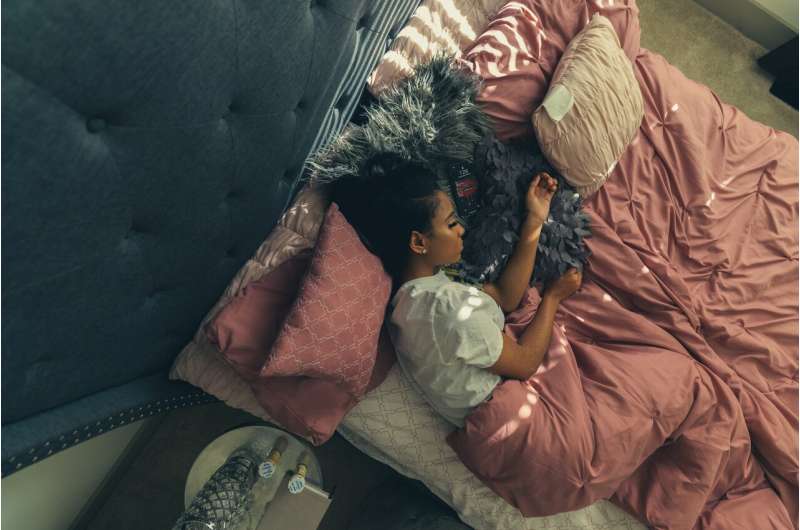This article has been reviewed according to Science X's editorial process and policies. Editors have highlighted the following attributes while ensuring the content's credibility:
fact-checked
trusted source
proofread
Unlocking restful nights: Teen-friendly social media habits for optimal sleep

The US Surgeon General issued an advisory on social media and youth mental health a week after the American Psychological Association issued a health advisory on social media use in adolescence. Both advisories note potential links between social media use and poor sleep quality in teens. Given these concerns, what specific actions can teens and parents take to optimize sleep?
A new national study, published in Sleep Health, offers insights into screen habits linked with better sleep.
"Getting enough sleep is crucial for teenagers because it helps their body and mind grow and develop properly," says lead author Jason Nagata, MD, assistant professor of pediatrics at the University of California, San Francisco. "Our research found that keeping screens outside of the bedroom, turning off device notifications, and avoiding social media use in bed is associated with better sleep among adolescents. If you wake up during the night, don't check your phone or social media."
- Keep screens outside of the bedroom. Having a TV set or internet-connected device in the bedroom was associated with a 27% higher risk of having trouble falling or staying asleep.
- Turn of the ringer and notifications. Leaving the phone ringer on was associated with 23% higher risk of having trouble falling or staying asleep compared to turning it off. A total of 16.9% of adolescents reported having a phone call, text message, or e-mail wake them up after they had tried to go to sleep during the past week.
- Don't use social media or other electronic devices before going to sleep. Using social media, chatting on the internet, playing video games, browsing the internet, and watching or streaming movies, videos, or TV shows while in bed before sleeping were all associated with trouble falling or staying asleep.
- If you wake up during the night, don't use your phone or engage with social media. One-fifth of adolescents reported that they used their phone or other device after waking up during the night in the past week. This was associated with a 34% higher risk of sleep troubles.
The researchers analyzed data from 10,280 preteens aged 10-14 who are part of the Adolescent Brain Cognitive Development Study, the largest long-term study of brain development and child health in the United States. Data were collected from 2018 to 2020. The adolescents and their parents answered questions about their sleep habits and youth were asked about their screen and social media use at bedtime. Of the group, 15.5% of preteens reported at least several days of trouble falling or staying asleep in the most recent two weeks. 16.9% reported being woken up by phone calls, text messages, or emails while sleeping at least once in the most recent week. Furthermore, 20.0% reported using their phone or another device if they woke up overnight.
"Adolescents may be hypervigilant to the sounds of phone notifications and immediately awaken to the sound of their phone," said Nagata.
"Adolescent development is a challenging time for many given the social pressures and physical, psychological, and emotional changes that occur," said co-author Kyle T. Ganson, Ph.D., MSW, assistant professor at the University of Toronto's Factor-Inwentash Faculty of Social Work. "Understanding the centrality of social media and smartphones to this developmental process, and being present, is crucial for parents to their child."
More information: Jason M. Nagata et al, Bedtime screen use behaviors and sleep outcomes: Findings from the Adolescent Brain Cognitive Development (ABCD) Study, Sleep Health (2023). DOI: 10.1016/j.sleh.2023.02.005





















